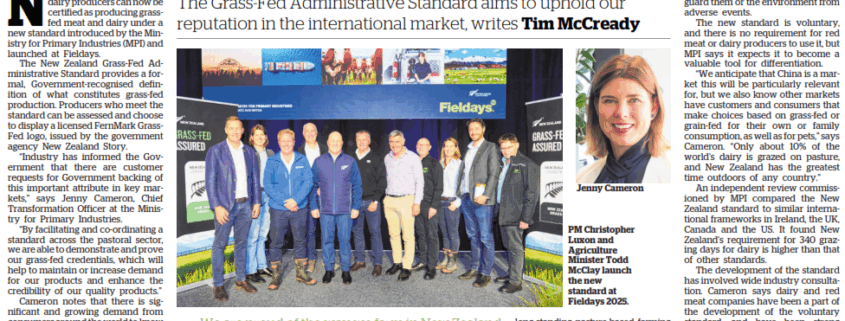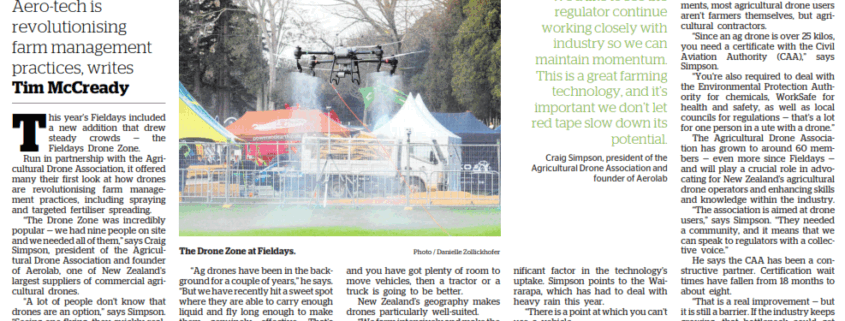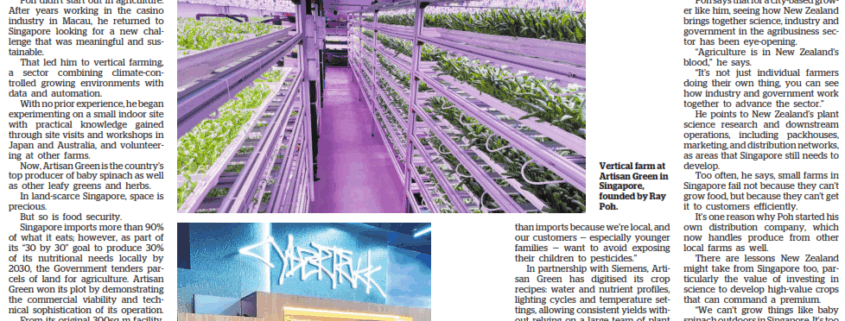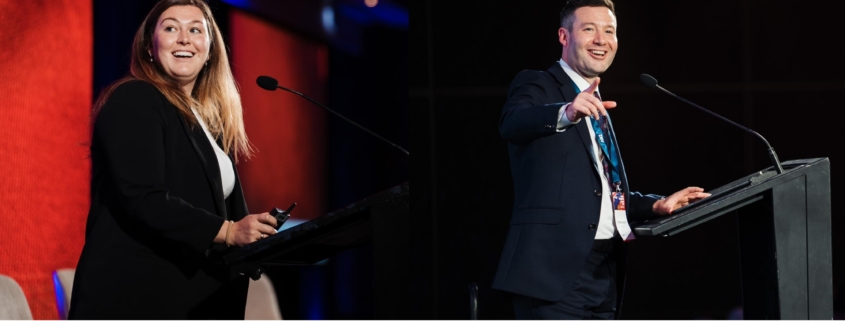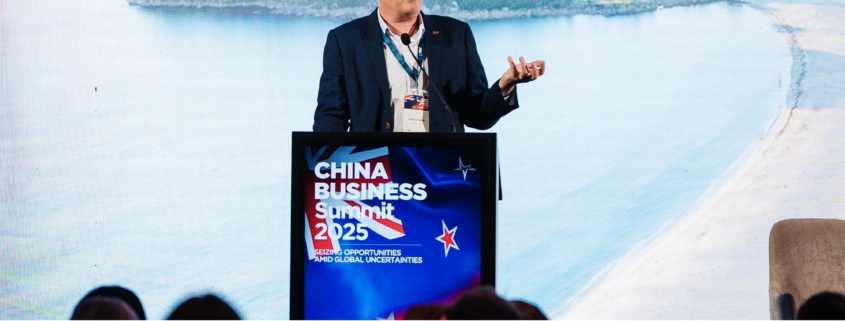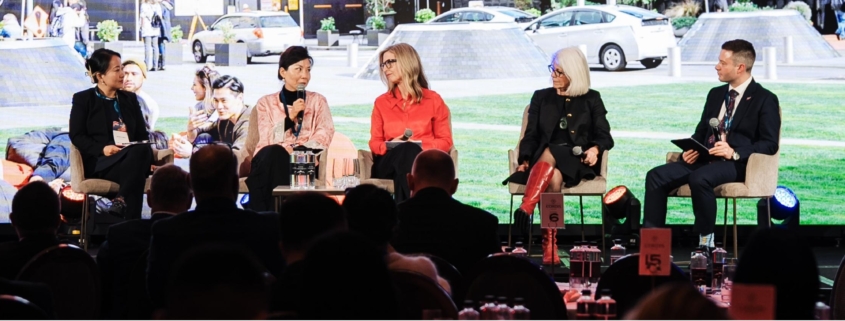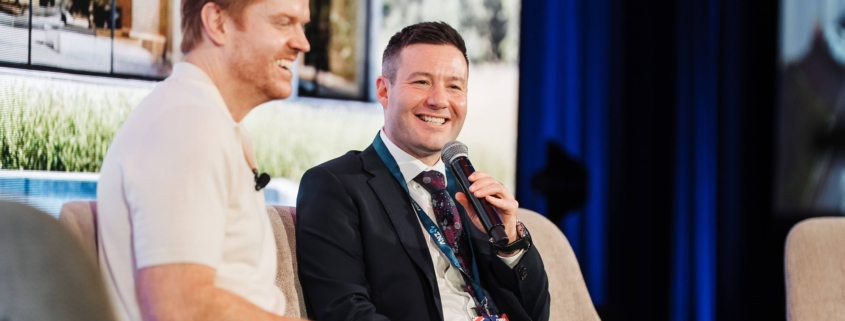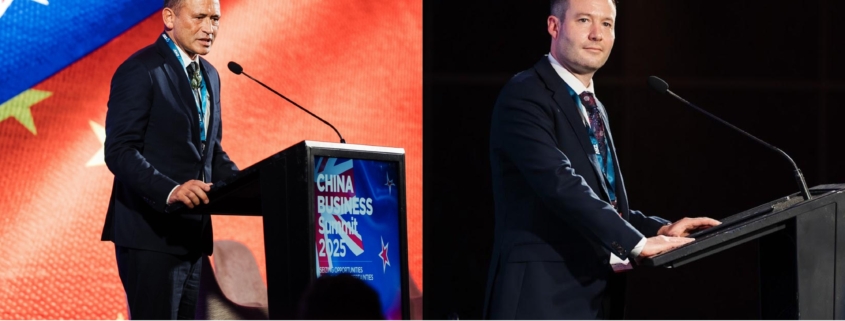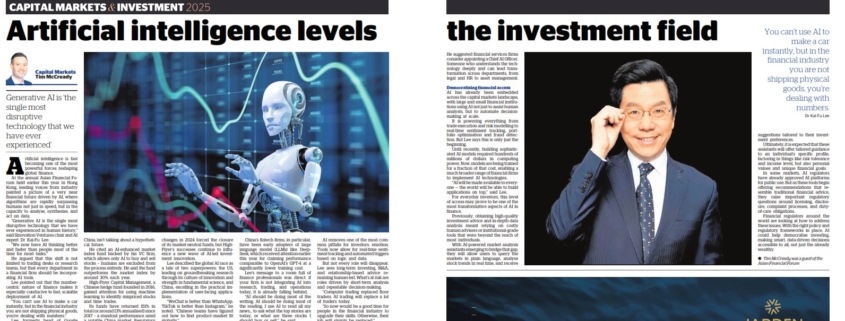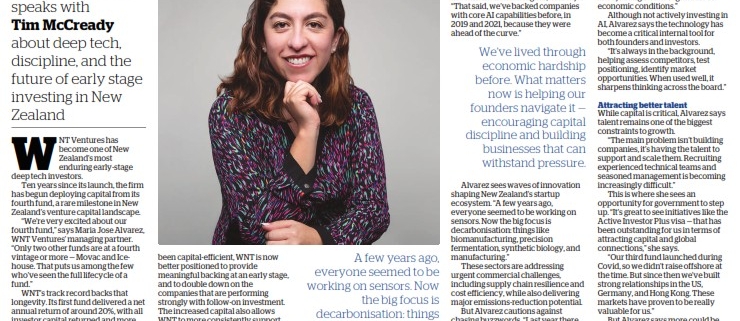Agribusiness and Trade: New Zealand launches grass-fed standard
- Official standard will increase demand for our products and enhance the credibility of our quality products.
- Producers who meet the standard can be assessed and choose to display a licensed FernMark Grass-Fed logo.
- The standard will be reviewed after one year, and then at least every three years.
New Zealand red meat and dairy producers can now be certified as producing grass-fed meat and dairy under a new standard introduced by the Ministry for Primary Industries (MPI) and launched at Fieldays.
The New Zealand Grass-Fed Administrative Standard provides a formal, Government-recognised definition of what constitutes grass-fed production. Producers who meet the standard can be assessed and choose to display a licensed FernMark Grass-Fed logo, issued by the government agency New Zealand Story.
“Industry has informed the Government that there are customer requests for Government backing of this important attribute in key markets,” says Jenny Cameron, Chief Transformation Officer at the Ministry for Primary Industries.
“By facilitating and coordinating a standard across the pastoral sector, we are able to demonstrate and prove our grass-fed credentials, which will help to maintain or increase demand for our products and enhance the credibility of our quality products.”
Cameron notes that there is significant and growing demand from consumers around the world to know how their food is produced, and to have traceability in the supply chain for products they buy.
“New Zealand can provide that,” she says. “We are proud of the way we farm in New Zealand with high biosecurity, sanitary, animal welfare and sustainable practices. We want to ensure these attributes are recognised and understood by the world.”
New Zealand’s temperate climate, with plentiful rainfall and sunshine, means our dairy and red meat sectors are largely pasture-based.
“This is a key point of difference for New Zealand’s dairy and red meat production, as animals on most other countries’ red meat and dairy farms spend much of the year indoors or eating grain-based diets,” says Cameron. The standard applies separately to red meat and dairy, and is designed to strengthen international market access and validate New Zealand’s long-standing pasture-based farming systems.
For dairy, the standard requires that animals spend at least 340 days per year, for at least eight hours per day, on pasture or forage crops, and have a diet comprised of at least 90% qualifying grass-fed feed.
For red meat, animals must be predominantly fed grass-fed feed types and be permitted to graze outdoors on pasture or forage crops year-round. Feedlots are not allowed, and animals must be removed from pasture or forage crops only for animal management purposes or to safeguard them or the environment from adverse events.
The new standard is voluntary, and there is no requirement for red meat or dairy producers to use it, but MPI says it expects it to become a valuable tool for differentiation.
“We anticipate that China is a market this will be particularly relevant for, but we also know other markets have customers and consumers that make choices based on grass-fed or grain-fed for their own or family consumption, as well as for pets,” says Cameron.
“Only about 10% of the world’s dairy is grazed on pasture, and New Zealand has the greatest time outdoors of any country.”
An independent review commissioned by MPI compared the New Zealand standard to similar international frameworks in Ireland, the United Kingdom, Canada and the United States. It found New Zealand’s requirement for 340 grazing days for dairy is higher than that of other standards.
The development of the standard has involved wide industry consultation. Cameron says dairy and red meat companies have been a part of the development of the voluntary standard, and have been strong proponents for it.
“Since the launch at Fieldays, we have received positive feedback from farmers and industry as a whole,” she says. “As of 27 June, we have had three grass-fed schemes listed as meeting the standard: Fonterra, Spring Sheep, and Westland Milk Products.”
The standard will be reviewed after one year, and then at least every three years, to ensure it remains fit for purpose as environmental and market conditions evolve.

